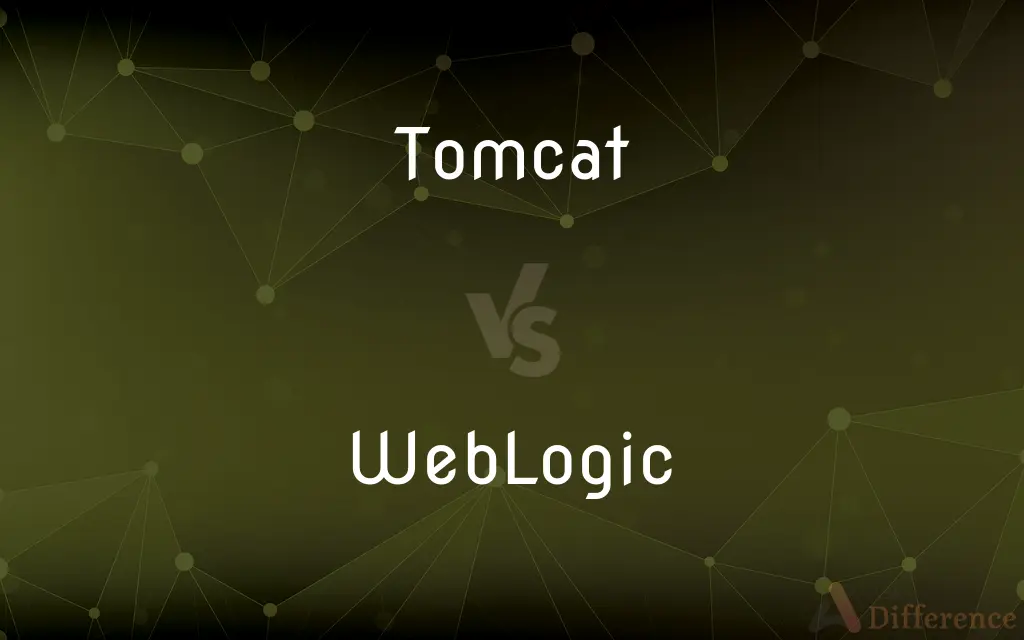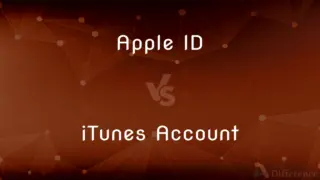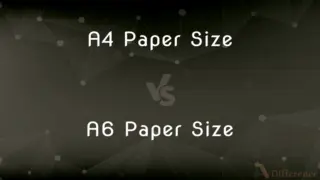Tomcat vs. WebLogic — What's the Difference?
By Tayyaba Rehman & Fiza Rafique — Published on February 10, 2024
Tomcat is an open-source Java servlet container, lightweight and primarily used for web application development. WebLogic, a more robust and enterprise-focused Java EE application server, offers extensive support for large-scale applications.

Difference Between Tomcat and WebLogic
Table of Contents
ADVERTISEMENT
Key Differences
Tomcat, developed by the Apache Software Foundation, is a popular choice for developing and deploying Java-based web applications. It primarily serves as a servlet container and web server. WebLogic, on the other hand, is an enterprise-level application server developed by Oracle. It offers a broader range of functionalities, including support for full-scale Java EE applications, making it suitable for more complex and demanding enterprise environments.
When considering resource usage, Tomcat is known for its lightweight and efficient architecture, which makes it ideal for applications where a full Java EE stack is not required. It consumes fewer resources, making it a preferred choice for simpler applications. WebLogic, in contrast, is more resource-intensive, but its comprehensive features cater to the needs of large-scale and complex enterprise applications, where such resources are justified.
From a community and support perspective, Tomcat benefits from a large open-source community, providing ample resources for troubleshooting and development. WebLogic, being a commercial product by Oracle, offers professional support and enterprise-grade features, making it a reliable option for businesses seeking dedicated support and advanced functionalities.
In terms of performance and scalability, Tomcat is well-suited for small to medium-sized applications and is often praised for its speed and efficiency. WebLogic excels in handling large-scale applications, offering robust clustering and load-balancing capabilities, essential for high-availability enterprise environments.
Lastly, regarding licensing and cost, Tomcat, being open-source, is free to use and modify, which is attractive for businesses looking to minimize costs. WebLogic, as a commercial product, comes with licensing costs, but these are often justified by the advanced features, integrations, and support provided by Oracle, especially for large organizations and complex applications.
ADVERTISEMENT
Comparison Chart
Nature
Open-source servlet container
Commercial Java EE application server
Use Case
Suited for simpler, web-based applications
Ideal for complex, enterprise-level solutions
Resource Usage
Lightweight and efficient
More resource-intensive
Community Support
Large open-source community
Professional support from Oracle
Performance
Fast for small to medium applications
Robust for large-scale, high-traffic apps
Compare with Definitions
Tomcat
A lightweight platform used for executing Java-based web applications.
Tomcat is known for its quick setup and ease of use for developers.
WebLogic
A server software application that provides a robust platform for building, deploying, and running enterprise Java applications.
They migrated to WebLogic to support their growing enterprise needs.
Tomcat
An open-source web server developed by the Apache Software Foundation.
They deployed the application on Apache Tomcat for testing.
WebLogic
A commercially licensed product that includes professional support and integration services.
They invested in WebLogic for its reliable professional support and integration solutions.
Tomcat
A servlet container that serves as a standalone server for web applications.
For their small project, they chose Tomcat for its simplicity.
WebLogic
A comprehensive Java EE server enabling developers to build and deploy secure, multi-tiered applications.
Their e-commerce site runs efficiently thanks to WebLogic's multi-tiered architecture.
Tomcat
A popular choice for developers due to its open-source nature and flexibility.
Their team prefers Tomcat due to its customizable features.
WebLogic
A platform offering advanced features like clustering, caching, and load balancing.
WebLogic's clustering capabilities ensure high availability of their critical applications.
Tomcat
A software implementation of Java Servlet and JavaServer Pages technologies.
The website's backend is powered by Tomcat.
WebLogic
An Oracle product known for its scalability, reliability, and support for large-scale applications.
WebLogic was chosen for its scalability in handling thousands of concurrent users.
Tomcat
A male cat.
Tomcat
To be sexually active with more than one partner. Used of men.
Tomcat
A tom, an intact male cat.
Tomcat
To prowl for sexual gratification.
Tomcat
A male cat, especially when full grown or of large size.
Tomcat
Male cat
Common Curiosities
What is WebLogic?
WebLogic is a Java EE application server developed by Oracle, designed for building and deploying enterprise-level applications.
Is Tomcat suitable for beginners?
Yes, due to its simplicity and ease of use, Tomcat is often recommended for beginners.
Can Tomcat handle enterprise applications like WebLogic?
While Tomcat can handle a variety of applications, WebLogic is specifically designed for more complex, enterprise-level applications.
Does WebLogic support cloud deployment?
Yes, WebLogic supports cloud environments and offers tools for easy deployment.
What is Tomcat?
Tomcat is an open-source Java servlet container and web server developed by the Apache Software Foundation.
What type of support does WebLogic offer?
WebLogic offers professional support from Oracle, including technical assistance and advanced features.
Can I integrate WebLogic with other Oracle products?
Yes, WebLogic integrates well with other Oracle products and services.
Is Tomcat free to use?
Yes, Tomcat is free as it is an open-source project.
Does WebLogic come with a cost?
Yes, WebLogic is a commercial product and requires a license for use.
Can I use Tomcat for a small business website?
Yes, Tomcat is well-suited for small to medium-sized web applications.
Does WebLogic offer better performance than Tomcat?
WebLogic generally offers better performance and scalability for large-scale applications compared to Tomcat.
Is there a large community for Tomcat?
Yes, Tomcat has a large and active open-source community.
Is Tomcat a full Java EE server like WebLogic?
No, Tomcat is primarily a servlet container and does not provide a full Java EE server like WebLogic.
Does WebLogic provide features for high availability?
Yes, WebLogic offers features like clustering and load balancing for high availability.
Can I migrate from Tomcat to WebLogic?
Yes, migration is possible but involves considering the differences in capabilities and architecture between the two platforms.
Share Your Discovery

Previous Comparison
Apple ID vs. iTunes Account
Next Comparison
A4 Paper Size vs. A6 Paper SizeAuthor Spotlight
Written by
Tayyaba RehmanTayyaba Rehman is a distinguished writer, currently serving as a primary contributor to askdifference.com. As a researcher in semantics and etymology, Tayyaba's passion for the complexity of languages and their distinctions has found a perfect home on the platform. Tayyaba delves into the intricacies of language, distinguishing between commonly confused words and phrases, thereby providing clarity for readers worldwide.
Co-written by
Fiza RafiqueFiza Rafique is a skilled content writer at AskDifference.com, where she meticulously refines and enhances written pieces. Drawing from her vast editorial expertise, Fiza ensures clarity, accuracy, and precision in every article. Passionate about language, she continually seeks to elevate the quality of content for readers worldwide.
















































